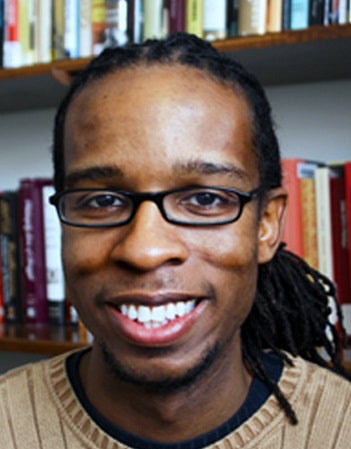 Dr. Ibram H. Rogers
Dr. Ibram H. RogersIn the whirlwind aftermath of the killing of 27 people at Sandy Hook Elementary School in Connecticut on Friday, the gun debate has enraptured millions of Americans.
In public, there does not seem to be much of a debate at all as to whether we need a gun control agenda.
“No single law, no set of laws can eliminate evil from the world or prevent every senseless act of violence in our society,” said President Barack Obama at the memorial service Sunday for the victims. “But that can’t be an excuse for inaction.”
Connecticut Gov. Dannel P. Malloy, Connecticut U.S. Senator Joseph I. Liberman, New York City Mayor Michael R. Bloomberg, and California U.S. Senator Dianne Feinstein are a few of the many politicians who made fervent pleas for gun control in the court of public opinion over the weekend. Meanwhile, the National Rifle Association and its leadings supporters in Congress have sat quietly on the sidelines. Thirty-one senators who support gun rights were invited to appear on “Meet the Press.” All of them declined, David Gregory, the show’s moderator, told The New York Times.
In private, it appears more Americans are willing to support stiffer gun laws. A new HuffPost/YouGov survey found that 50 percent of Americans support stricter gun laws and 43 percent want them to stay the same or be made less strict, compared to 44 percent and 47 percent, respectively, in a poll in August.
But this data also show Americans are wrestling with the issue. Do I protect my children, my students by pushing for harsh gun laws or pushing for increased security? Do I focus on snatching a gun out of the hands of the offender or putting a gun in the hand of the defender?
It appears to me that many Americans are doing both—a searing paradox. It appears to me that after most mass murders we react this way in paradox.
This is how I reacted on Friday. This is what I have heard from others behind closed doors. I have been hearing people say teachers should be armed. I have been hearing people say schools should have metal detectors, more police officers. I have been hearing people say I need a gun to protect my children. I have been hearing people declare I will not be an unarmed victim.
In paradox, we are wishing for harsher gun laws and a militarized state. We are advocating for guns off the street to offend and guns on the street to defend. We are attacking the American culture of violence at the same time we call for the militarization of schools, colleges and universities.
These paradoxes of violence do not surprise me. They should not surprise you. As we all know, in the United States, to be anti-war, to be anti-military, to call for the mass reduction of the military budget, is to be un-American, is to be unpatriotic. To be pro-war, to be pro-military, to call for a large military budget is to be American, is to be patriotic. We cannot be anti-war and an all-American boy or girl, and then we wonder why there is so much violence.
Some of us may write off Adam Lanza as crazy, let off the hook our reactions to these tragedies, and then convince ourselves this tragedy is not a reflection of a serious paradox, we have yet to resolve. That would be a mental tragedy, if we did.
Lanza clearly had mental health problems, but he also had some mental successes. He took college classes at 16 at Western Connecticut State University in 2009, earning a 3.26 grade point average. Therefore, as college professors, as administrators, as K-12 teachers, we have potential mass murderers in our classrooms, in our midst, sometimes excelling in our classes. But how do we create a societal environment that prevents them from being the shooter in another American tragedy?
We can first stop with the paradox of reactions. We cannot call for peace at home, guns off the street at home, while supporting war abroad, American guns on the street abroad. We cannot call for guns off the street, and then stockpile guns in our homes. No one should be armed — not the defenders, not the offenders. If we advocate gun control in public, in society, we have to practice gun control in private, among ourselves. We cannot tell others to be nonviolent with no plans for ourselves to be nonviolent.
The time calls for a critical union of the academy and public policy, moving aside the political middle-man and middle-woman that usually handicaps progress. Our academics who live to think need to figure a comprehensive approach to gun control.
Renewing the assault rifle ban that expired in 2004 is a no-brainer. That is only scratching the surface though. We have this culture of security through violence that is deeply embedded in the American psyche, which is driven even deeper by the War on Terror, which is driven even deeper by every murderer of a Black teenager who claims self-defense, which is driven even deeper after every mass shooting.
A militarized, heavily policed country creates militarized people. The guns that make us feel more secure, are the guns that kills us. It is our job as intellectuals to resolve this American paradox of guns and violence.
Dr. Ibram H. Rogers is an assistant professor of Africana Studies at the University at Albany — SUNY. He is the author of The Black Campus Movement: Black Students and the Racial Reconstitution of Higher Education, 1965-1972.


















